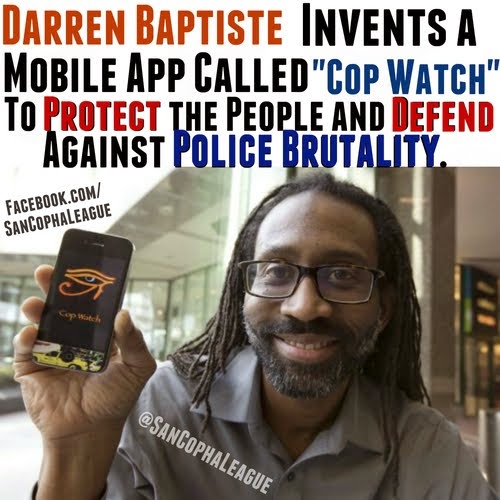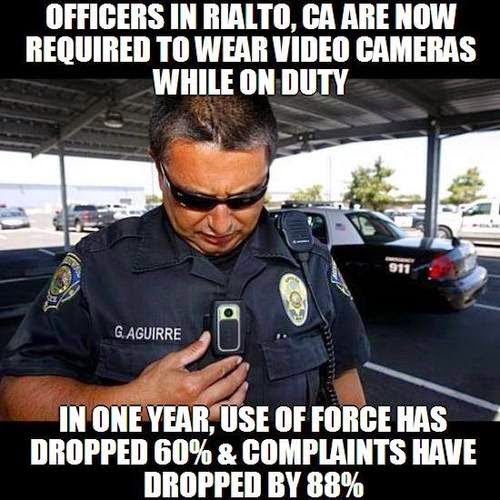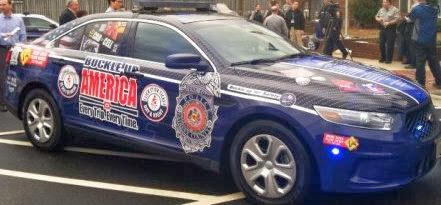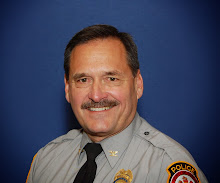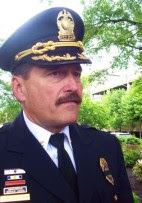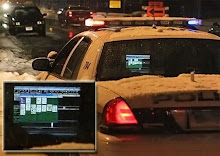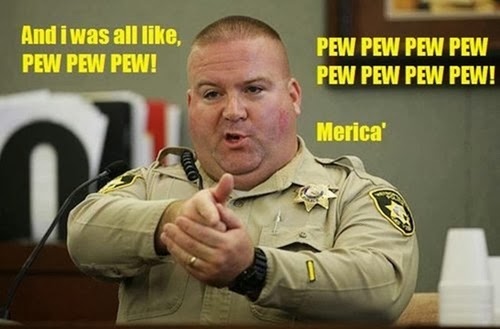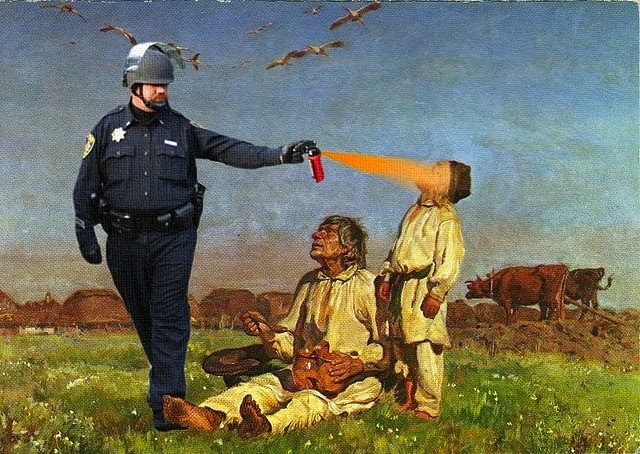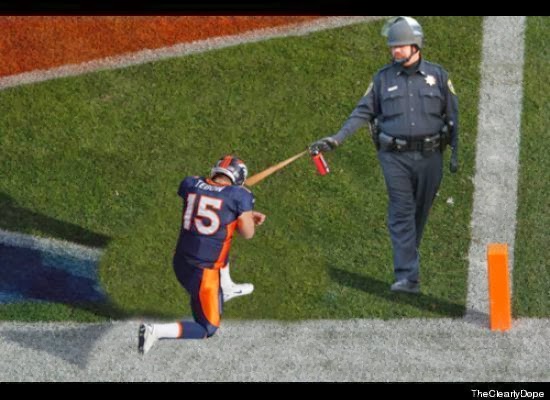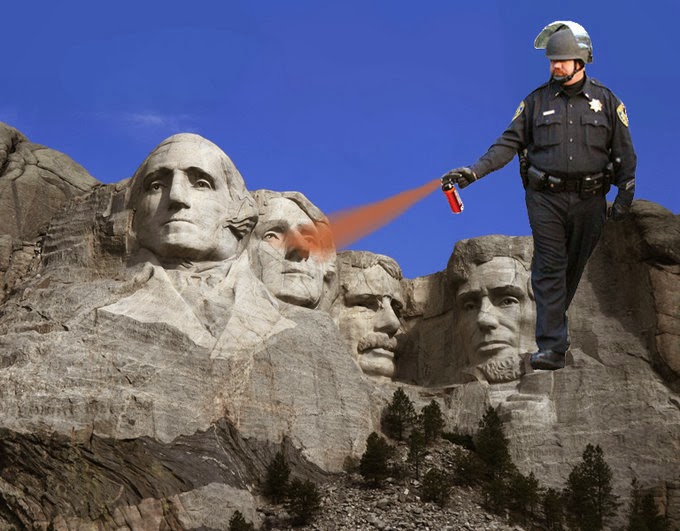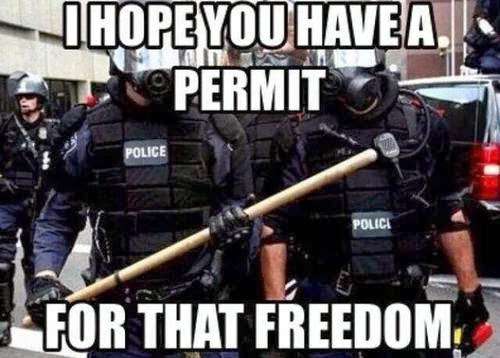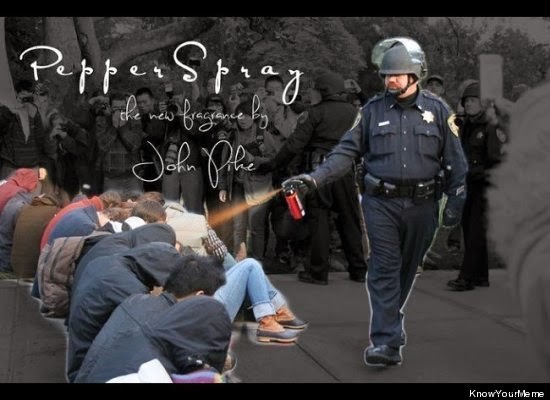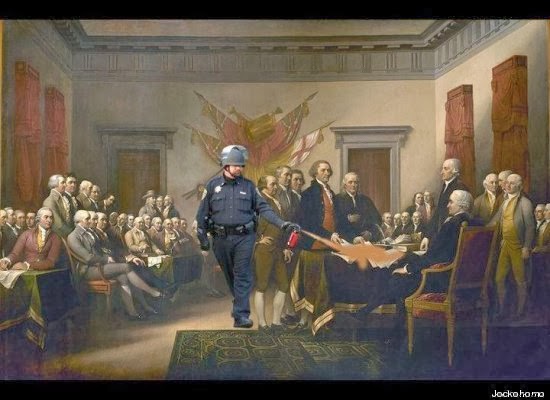In jail, claustrophobic and confused
Justin Jouvenal, The
Washington Post
Glen Sylvester avoids
elevators and the back seats of cars to fend off his claustrophobia, but as the
police officers walked him toward the small jail cell at Baltimore-Washington
International Airport in May 2016, he braced for the panic to grip his body.
Sylvester, 54, was
already bewildered. He had no idea why he had been placed under arrest. Minutes
earlier, the Maryland man had been squashed into an economy seat on a flight
idling on the tarmac when two officers boarded.
Suddenly, he was
handcuffed and being pushed through the airport in a wheelchair. The insurance
agent, Army veteran and youth basketball coach said he kept blurting out:
"You have the wrong person!"
Then he was facing the
cell. As the door closed, Sylvester said he felt like a drowning man. His chest
seized, and it seemed as though he was unable to get a breath no matter how
hard he tried. He pressed his face between the bars, trying to gulp fresh air.
A single thought went through his mind: What did I do?
The answer, according to
a lawsuit Sylvester recently filed in Fairfax County, was nothing. The District
Heights resident claims he was mistakenly arrested for a pair of thefts from a
Fairfax City, Virginia, grocery store the year before.
The charges were
eventually dropped, but Sylvester said the 12 days he endured in various jails
were a nightmare for someone with claustrophobia. He said he lost 18 pounds
while behind bars, and his wife said he still sleepwalks, checking the bedroom
door for air as if he is still in a cell.
"It's baffling to
this day. Why me?" Sylvester asks. "How did you pick me out of
billions of people? I really don't understand that. It makes me emotional, to
be honest."
Sylvester and his lawyer
say they still don't know how police homed in on him as a suspect. The Fairfax
County officer named as defendant in the lawsuit, Brian Geschke, did not
respond to requests for comment, and a police spokeswoman declined to comment
on the case, citing the pending litigation.
A spokesman for Fairfax
County said Geschke believes the investigation was conducted properly.
"Officer Geschke
denies the allegations in the complaint and will vigorously defend the case,"
the statement read.
False arrest is a rare
but real problem that can have searing consequences, from job loss to the
destruction of a reputation. Unlike the more high-profile issue of wrongful
convictions, no one tracks exactly how many cases of false arrest occur across
the country.
But each year, dozens
file lawsuits claiming that eyewitness error, paperwork mix-ups, sloppy police
work or even identity theft have led police to haul them to jail for crimes
they didn't commit or for offenses that never happened. Most are eventually
released after the error is discovered.
Sylvester's trouble
began May 13, 2016, when he was traveling home from attending the funeral of an
uncle in Grenada, a country in the Caribbean. After landing at BWI, the plane
was held on the tarmac, and the officers removed Sylvester from the flight.
"It was incredibly
embarrassing in the world that we are living in," Sylvester said.
"It's like I'm a terrorist."
Sylvester said he spent
three hours in the cell at BWI before he was removed to go before a magistrate.
His panic attack finally lifted as he went outside. He recalls sucking in air
as the tightness in his chest eased.
The respite was
short-lived.
"You have four
felony charges in the state of Virginia, and you are considered a fugitive for
leaving the country," Sylvester recalled the magistrate telling him as she
explained why he wouldn't get bail.
Sylvester said he was
stunned - he hardly ever went to Virginia and had never been to the store he
was accused of robbing.
As Sylvester would later
learn, two men walked through the Fairfax City-area Wegmans about 6 p.m. Nov. 5
and Nov. 12, 2015, piling into their carts items including Veuve Clicquot
champagne, moscato wine and roses. Then they simply walked out the door and
made off with the goods.
Surveillance cameras
captured the thefts, showing that they appeared to be carried out by
middle-aged black men.
The losses totaled more
than $1,250, meaning Sylvester was charged with felony grand larceny. Each of
the four counts carried a prison sentence of up to 20 years if Sylvester were
eventually convicted.
Sylvester claims he was
coaching basketball at Kelly Miller Middle School in the District of Columbia
at the times of the crimes. His story was bolstered by three witnesses interviewed
by The Washington Post. His wife, an assistant coach and a parent of a player
said they recalled seeing him at the school about 6 p.m. or a short time before
and after on the days in question.
After the hearing before
the magistrate, Sylvester was taken to a detention center in the Annapolis,
Maryland, area to await extradition to Virginia.
His first stop was a
large holding cell where he was placed with others under arrest. Sylvester said
he was scared as the people discussed drug use and assaults they had carried
out. He shrank into a corner, doing breathing exercises to try to keep his
claustrophobia at bay.
Sylvester's life
revolves around basketball. He has spent 13 years as the head basketball coach
at Kelly Miller Middle and at the Seed School, also in D.C. He is also the
president of the Bulls, a basketball and mentoring program for at-risk boys
that has helped more than 20 participants get into college and earn degrees.
Sylvester said four have landed in the NBA.
His own record is not
without a blemish. While in college in North Carolina in the 1980s, Sylvester
said, he did community service for stealing two Cabbage Patch dolls from a
store. A check by The Post turned up no other similar offenses in the
intervening years.
At the detention center,
Sylvester was eventually allowed to call his best friend, who was supposed to
meet him at the airport. Derrick Wilson alerted Sylvester's wife.
"It was
unbelievable," Wilson said. "He couldn't believe he was in jail over
something he didn't know about."
He was then issued a
jail jumpsuit and transferred to his own cell at the detention center. He said
he kept expecting authorities to realize their error and release him, but now
it was sinking in he would be in the jail for a while.
Sylvester said he
remembers the exact dimensions of his cell - 7 by 11 feet - because he paced it
obsessively.
He pulled his mattress
onto the floor next to a dirty toilet so he could sleep with his head on the
cell door. He said doing so allowed him to feel the air coming through the food
slot, which helped his claustrophobia.
"You talk about
broken," Sylvester said. "You're broken at this point."
Eleven more days would
drag by in the detention center. Sylvester missed his wedding anniversary on
May 17. Finally, on May 25, Virginia authorities arrived to transfer Sylvester
to Fairfax County, where he was granted bail.
Sylvester walked outside
and plopped down on a curb.
"I remember just
crying like crazy," he said.
In September 2016, a
Fairfax County prosecutor decided to drop the charges against Sylvester after
receiving the results of an analysis that showed Sylvester's cellphone
accessing cell towers in the District of Columbia and Maryland at the time of
the crimes, according to emails obtained by The Post.
The Wegmans loss-prevention
officer, who originally reported the thefts to police, also cast doubt on
whether police had arrested the right person after seeing him in court for a
preliminary hearing.
"My impression was
that he may not be the same person I saw in the videos of these
incidents," she wrote in a sworn affidavit provided to Sylvester's lawyer.
Sylvester is claiming in
the lawsuit that Geschke was grossly negligent for not obtaining the cellphone
records and interviewing him before seeking arrest warrants against him. The
county has argued in its response that Geschke's actions do not rise to the
level of gross negligence and that the case should be dismissed. The response
does not address the facts asserted by Sylvester.
The arrest has left
Sylvester and his family shaken.
"It's so easy to
get arrested and lost in the system," said his wife, Stacey Sylvester.
"I don't want anyone else to have this terrifying feeling again. It hurts
my heart. It does make me mistrust the justice system."
Idiots! They could have killed someone, they should have broken off the chase…this is just a cheap excuse to justify the use of Nazi license-plate reader (Which they can use on you too)
Chase for fugitive stretches 38 miles of I-66 through Fairfax,
Prince William, Fauquier
Aug 22, 2017
A suspect in an attempted homicide is in custody after a high-speed
chase on Interstate 66 through Fairfax, Prince William and Fauquier counties.
Robert David Sheets, of Quarryville, Pennsylvania, is accused of
shooting a man Aug. 13 and then shooting and stabbing the victim the next day
when he realized the man was still alive. The victim survived both attempts on
his life.
Sheets is charged with two counts of attempted homicide in
Pennsylvania, as well as charges related to the chase Sunday across Northern
Virginia, according to a news release from Fairfax County police.
The chase began with a license-plate reader alerting officers that
Sheets was connected to a 2007 Ford Edge heading west on I-66 Sunday morning.
Fairfax police cruisers pulled in behind Sheets near the Fairfax County Parkway
and attempted a traffic stop.
Sheets sped away, according to police, accelerating to more than 100
miles per hour down I-66. About 38 miles later, in Fauquier, Fairfax police
were able to stop the SUV in the area of Route 17 and Route 50.
These people just don't get it. It's not about murder, its about hiring punks to do a mans job
Concerns about Fairfax County police can be shared on these websites
By Michelle Basch | @MBaschWTOP
August 19, 2017 12:55 am
WASHINGTON — Two new websites make it easy to share a concern or
complaint you might have about the Fairfax County Police Department.
The county has a new civilian review panel made up of nine residents, as
well as an independent police auditor. Both can review completed police
investigations.
Fairfax Co. police citizen complaint panel now ready to act
FAIRFAX COUNTY, VA NEWS
Ex-Fairfax Co. officer sentenced in shooting death to be released next
week
FAIRFAX COUNTY, VA NEWS
The civilian review panel can look into cases involving accusations of
officer misconduct or abuse of authority. The auditor can take a second look at
in-custody death and police use-of-force investigations.
At new websites the county has set up for each, you can fill out
complaint forms and email them. You can also opt to print out the forms and
submit them in person or through the mail.
The independent police auditor and civilian review panel were
established following the death of John Geer, who was shot and killed in the
doorway of his Springfield home in 2013. County police Officer Adam Torres
pleaded guilty to involuntary manslaughter in connection with the death.
Fairfax County launches civilian reviews of alleged police misconduct
By Antonio Olivo August 17 at 4:05 PM
The two Fairfax County civilian bodies created to monitor
police department investigations are ready to begin reviewing allegations of
improper use of force and other misconduct, county officials announced
Thursday.
The Independent Police Auditor and a nine-member Civilian
Review Panel were appointed in response to questions about how the county
handled an investigation into the 2013 shooting of an unarmed man outside his
home in Springfield.
The auditor will review cases in which someone is shot by a
police officer, dies while in custody or is injured after an officer uses
force.
The Civilian Review Panel will review investigations into
alleged harassment by police, reckless endangerment and other cases of
misconduct.
Complaints can be made by telephoning the independent
auditor at 703-324-3459 or filling out a form at the Fairfax County website.
Civil Rights Groups Press Virginia Supremes On Plate Readers
Virginia Supreme Court takes
written arguments from civil rights groups against the use of license plate
cameras.
Civil rights groups made their
case to the Virginia Supreme Court, urging the justices last week to find that
the police use of automated license plate readers (ALPR, also known as ANPR)
violates state privacy laws. The American Civil Liberties Union (ACLU),
Electronic Freedom Foundation (EFF) and Rutherford Institute each filed
petitions in their case against the Fairfax County Police Department that
claimed the use of cameras to gather intelligence on motorists not suspected of
any crime violated Virginia's Government Data Collection and Dissemination
Practices Act.
Last year, a Fairfax County judge
rejected the argument (view ruling), even though a 2013 state attorney general
opinion agreed with the ACLU and EFF (view opinion). The groups insist that the
law seeks to protect private information about drivers, and that the lower
court judge was construing the term 'personal information' too narrowly.
"ALPR data clearly fits
within the types of personal data of concern to the General Assembly because it
allows the government to monitor patterns of movements associated with
identified vehicles, and to easily link that data to 'personal activities' of
specific Virginia residents using data readily available through
intercommunicating databases," EFF attorney Matthew J. Erausquin wrote.
"In the past few years, as it has become clear how easy it is to aggregate
seemingly innocuous and isolated pieces of data from disparate sources to
create a full and revealing picture of an individual, agencies and
organizations that work on privacy issues have broadened their definition of
personally identifying information."
The group cited the Federal Trade
Commission's updated definition of personally identifiable information to
include cases where the information can be "reasonably linked" to a
particular person using various identifiers. For its part, the ACLU blasted the
lower-court judge for dismissing the attorney general's opinion in a footnote.
"Nothing in the [judge's]
letter opinion... explain or support a conclusion that the instant case
'differs from the situation reviewed by the attorney general,'" ACLU
attorney Edward S. Rosenthal wrote. "Since no trial was held and no
admissions of fact were made by [our client] to support such a conclusion, it
is difficult to ascertain what the trial court based this remark upon."
Virginia law requires courts to
give "due consideration" to the points made in a formal ruling of the
attorney general.
"We're on the losing end of
a technological revolution that has already taken hostage our computers, our
phones, our finances, our entertainment, our shopping, our appliances, and now,
it's focused its sights on our cars," Rutherford Institute president John
W. Whitehead said in a statement. "By subjecting Americans to surveillance
without their knowledge or compliance and then storing the data for later use,
the government has erected the ultimate suspect society. In such an
environment, there is no such thing as innocent until proven guilty."
Subscribe to:
Posts (Atom)


